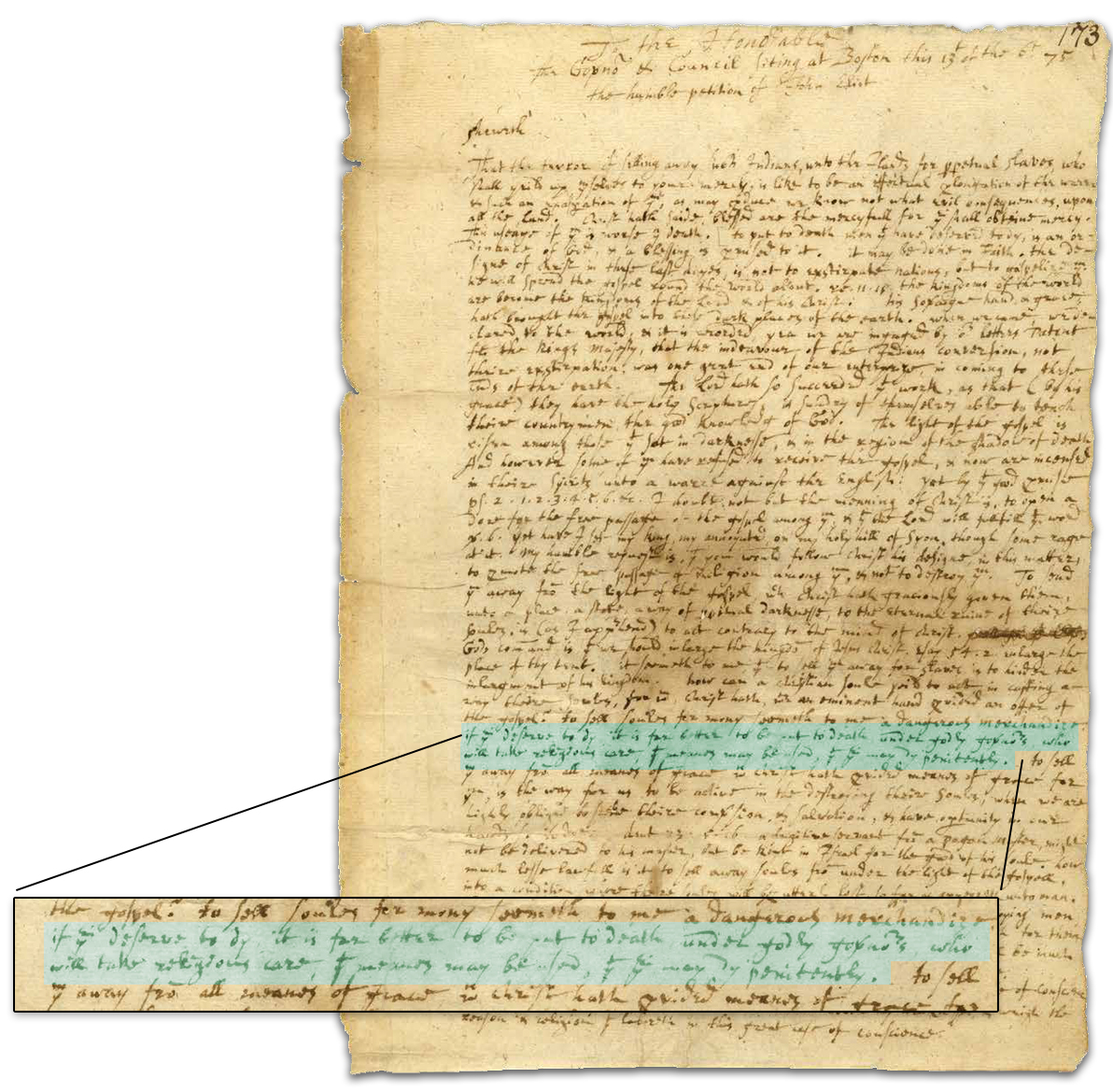By 1638 enslaved Africans had arrived in Massachusetts. African-Americans have been present longer than most European immigrant groups.
“To sell souls for money seemeth to me a dangerous merchandize.”
- Missionary John Eliot, 1675
”Indian Enslavement
As “captives in a just war” Indians were sold into slavery. Enslavement of Native people continued for many decades although colonial leaders were uneasy about it. Often male captives were angry, creating fear for their “masters.” Familiarity with the area facilitated escape. In response, some were sold away to Caribbean plantations. For many it became a death sentence from disease, injury, and severe physical punishment.
Bleak Options
John Eliot is known as the Apostle of the Indians. He protested selling captives into slavery in the Caribbean. While not clearly favoring execution, he wrote that their prospects would be better in the afterlife if “put to death under Godly Governors.” Dying “penitently” was better for their souls than being sent away and deprived of future religious instruction.
 John Eliot’s letter, August 13, 1675. Missionary John Eliot favored mercy for Indian captives. However he wrote, “If they deserve to die, it is far better to be to be put to death under Godly Governors, who will take care that means may be used that they may die penitently.”
John Eliot’s letter, August 13, 1675. Missionary John Eliot favored mercy for Indian captives. However he wrote, “If they deserve to die, it is far better to be to be put to death under Godly Governors, who will take care that means may be used that they may die penitently.” - Massachusetts Archives
Africans in Boston: Voyage of the Ship Desire
In 1638 Captain William Peirce embarked for Bermuda on his ship Desire. The plan “misfired” and he continued beyond his intended destination into the Caribbean. Peirce sold several Pequot captives in exchange for “some cotton, and tobacco, and negroes etc.” Returning to Massachusetts he made the first recorded landing of Africans for sale. He continued involvement in the slave trade until his death three years later in a confrontation with Spanish enemies.
Was Slavery Hereditary?
Although slavery was legal in Massachusetts it was not formally defined as hereditary. Over time Massachusetts adopted the practice of other English colonies. In hereditary fashion, the children of enslaved people took the status of their mother.Zanzibar Slave Monument, near the site of slave auctions.
- Tanzania Tourism
Shackles in the collection of the National Museum of African-American History and Culture.
- Smithsonian Institution
Cruel Calculation
Because Africans were unfamiliar with the area, impossibly far from home, and divided by different languages at first, they were thought to be more susceptible to control than enslaved Indians.
